Outer Wilds (Nintendo Switch) Review
By Michael McCann  31.01.2024
31.01.2024
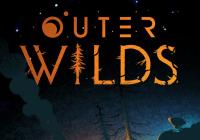
Much has been said of Outer Wilds, a toy box-sized space simulation. Starting out initially as an independent student project in 2012, then taken on by a studio that was founded by Hiro from Heroes fame, it eventually evolved into a fully-fledged darling of the indie world following its official release in 2019. It won the many awards and plaudits of an entire industry - one of those titles that's often described as being one that's best kept as a mystery "going in" and, ironically enough, one that many wish to have their memories wiped of playing, neuralyzer style, so that they can experience it again for the first time. This kind of talk is hard to ignore as players and critics seem to be fairly unanimous in their praise for Outer Wilds; and so goes that it's been on the backlog for quite a while. Its success brings, of course, a port to the Nintendo Switch and no longer an excuse not to play it.
It does happen every so often that one can feel totally out of step with the consensus. Instances that one can see the reasoning behind this and that being so, but can't help but feel that a perfunctory narrative has permeated through our tiny, insignificant sphere of perception. It's a tricky one to attempt to mentally account for, which means where it lands could be placed literally anywhere around the mark. Blade Runner is a good film, Death Stranding is a good game, The Simpsons is better than Family Guy, people will buy into female protagonists, and smoking is bad for you - but these weren't always the cases.
Is Outer Wilds really an all-time classic title? A work of art that will stand the test of time, like the Steam reviews "overwhelmingly" say it is? Inflammatory though the setup is, it's not at all to diminish those opinions or heighten one's own, but it is still hard to envisage a reality where a majority of players would play Outer Wilds for the first time, follow it through to the end credits unassisted, and feel this way.
The crux for Outer Wilds is that it does feel somewhat like an original experience, mostly for it pursuing the post-Dark Souls world trend of "show, don't tell (and sometimes not even show), and let the player figure it out for themselves." It's a design language that comes across as fresh and different, coming from a different school of thought than the usual rules and formulas of game design that many development teams do follow. It's capable of challenging the individual, as it has done in this instance, on their expectation, chiefly for that of feedback, based on what little it places out in its own shop front. It's not a point to be quickly dismissed, and why, most likely, it's a title that resonates with a lot of people.
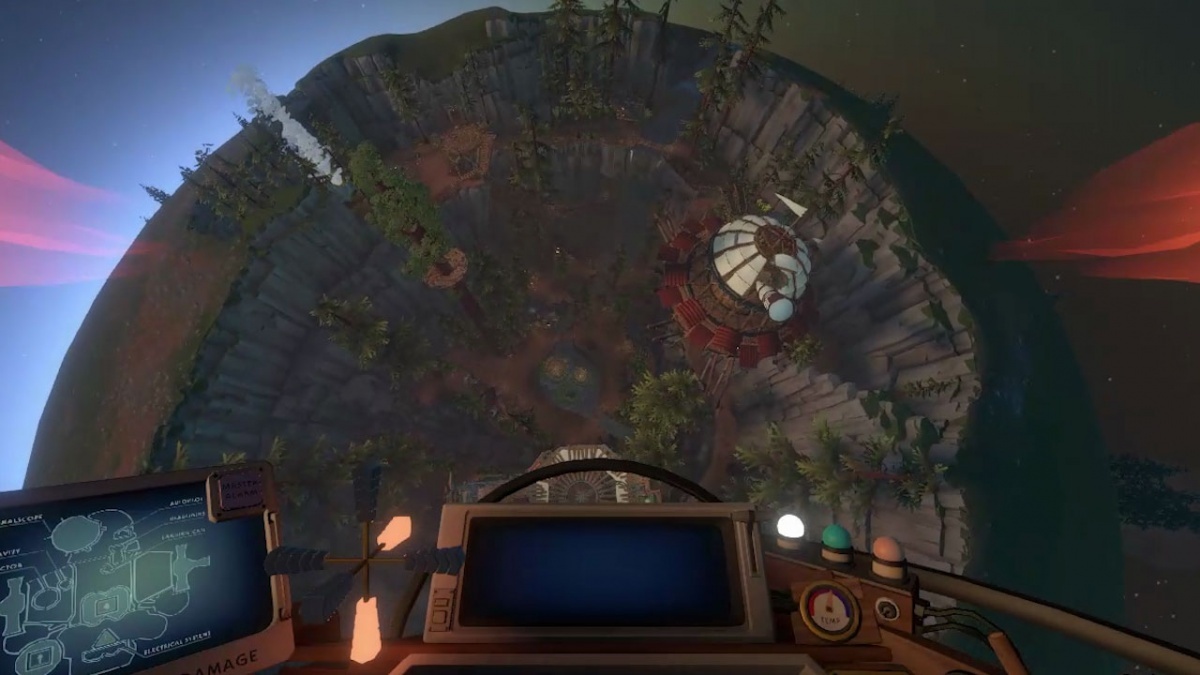
When you take this factor onboard in conjunction with a couple of interspersed, mind-bending gameplay mechanics and a non-linear narrative that slowly reveals itself over the course of its playtime, the argument for it is logically robust. It is, for better and worse, a shining example of what games can do that no other medium can.
Without giving too much away, control is assumed of a green cadet, part of the nascently-spacefaring Heathian race, venturing out on their first solo flight into space. From there, they make discovery of the ancient Nomai race and piece together information about the events leading up to their extinction, whilst being trapped inside of a time loop that lasts 22 minutes of real-time.
It's a compelling premise, which manifests largely as an exploration game, visiting one of the five planets in the solar system non-linearly, discovering points of interest and scanning text and audio logs, which in turn uncover parts of the story or further clues to aid solution to gated locations elsewhere. Progress is often obfuscated in lieu of observation and lateral thinking, of which most of the legwork is done in the head, forming much of the edifice of Outer Wilds.
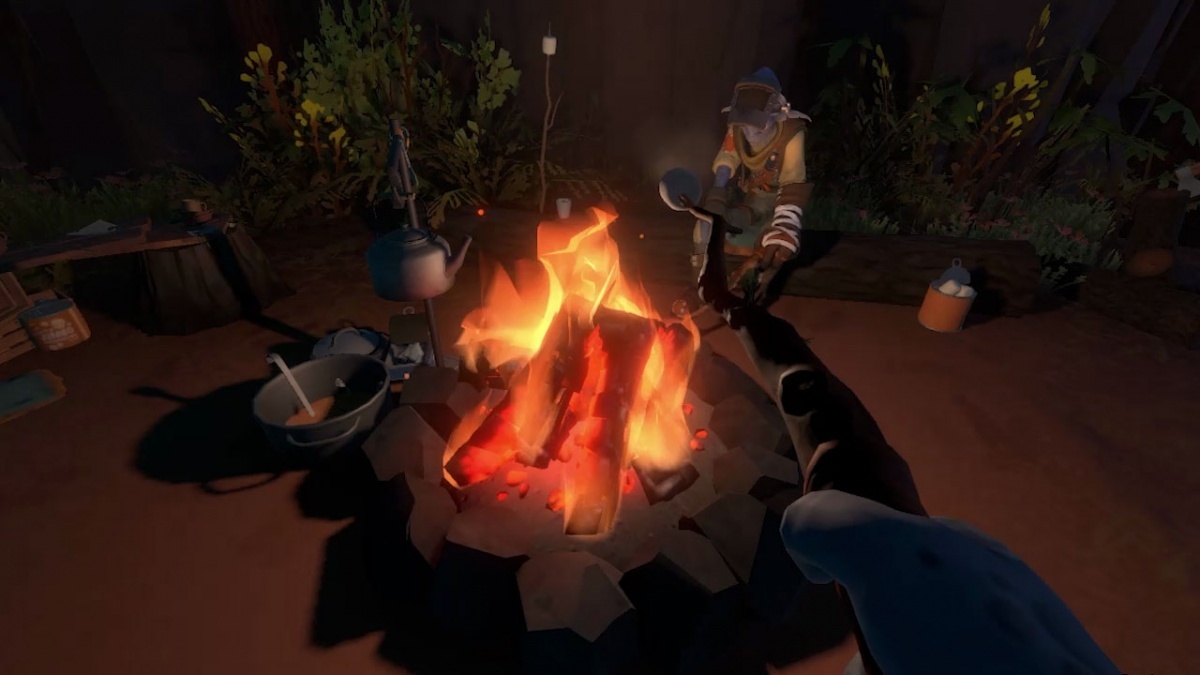
Usually, too, there's a clever and unique concept or conceit for each one of the planets within the solar system, which won't be ruined in this review, though suffice to say encountering these concepts for the first time is a lot of the fun. One would think it would be great to see some of these mechanics expanded on in a more traditional gameplay focused offering.
Outer Wilds nails the aspect of discovery and exploration, particularly in the early goings, creating an atmosphere of a grand space expedition in spite of a modest graphical budget. Some have commented on this port being a particularly ugly version of the title, but it feels a little bit of an unfair assessment. That, and it was never really that much of a "looker" in the first place. In practice, it performs quite well on the Nintendo Switch, even impressing in handheld mode.
Take into account that an entire solar system is being simulated (part of the reason for the 22-minute time loop mechanic) and it is a marvel that Mobius Digital got this thing to run on the machine at all and still look as well as it does. Only once did the performance tank to running at around 1fps, and that was swiftly corrected by a reset; acceptable on consideration of each planet having its own orbit and gravity field, and that seamless travel from the surface to deep space is available to the player from any of them at any time.
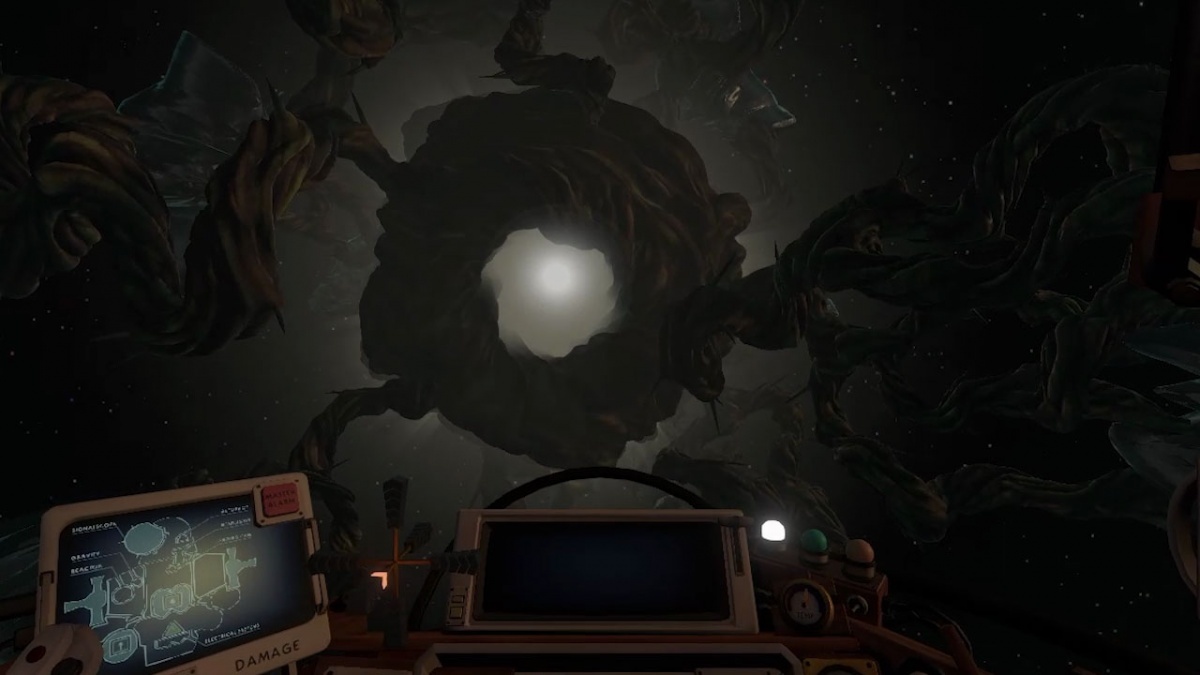
Some of the post effects, like what is used for the black hole, manage to elicit genuine contemplative awe, and even the frustration of the ship's autopilot, which always pilots directly into the fiery grave of the sun, is offset by the spectacle of solar flares and blinding light filling the frame every single time it does.
It definitely does make some impressions. Outer Wilds' shortcomings, however, largely come into focus the further one ventures into it. Once the awe of the little sandbox solar system wears off, there isn't really a lot of depth to these environments or in how they can be interacted with. Rather, Outer Wilds casts an illusion of depth whereby there's only a set amount of prescribed things that can be done, which reduces down as: go to the place and scan the thing.
This isn't always a negative observation to make, and admittedly perhaps it is down to personal preference here, but there is a distinct lack of feedback when all of the elements coalesce in Outer Wilds, and so it really craves for that feedback. Even some of the "eureka" moments, after one has been working over the grey matter, scanning all the things, following a thread towards a breakthrough - there can be a distinct lack of climax or reward upon figuring it out. This is often and probably most damningly compounded by the central mechanic of the time loop, which might reset back to the start of the loop just as an arcane, laborious route to a point of interest has been discovered, or if the protagonist happens to die from a simple error of not equipping a spacesuit.
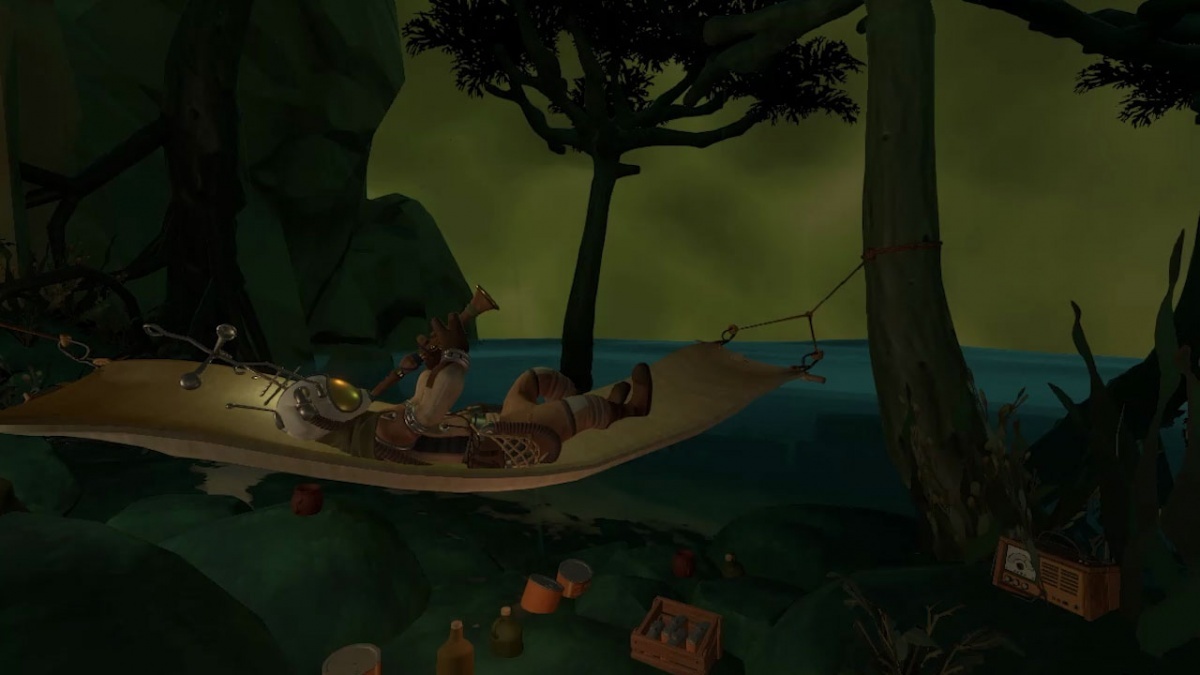
This is intentional design and is amusing the first time it happens, but quickly becomes annoying when it must be manually equipped on every single loop, and when trying to do a very specific thing. This is total sacrilege to say to the people that like this title specifically for its extrinsic qualities, but something like unlockable trinkets for your cockpit would've gone a long way to engendering a sense of achievement in Outer Wilds - particularly when the cockpit view and triaxial ship controls are what keep the title engaging during some of the duller moments.
There then comes a point in Outer Wilds whereby all leads are exhausted and otherwise all avenues have turned into dead ends. It really does feel like there is not enough information given within the game context to progress further. When this juncture is met, Outer Wilds becomes an exercise in repetition, revealing the smallness and emptiness of its world, to only then, after seeking a walkthrough, eventually lead to a payoff that doesn't seem to capitalise on some of the concepts laid out in the story in the end.
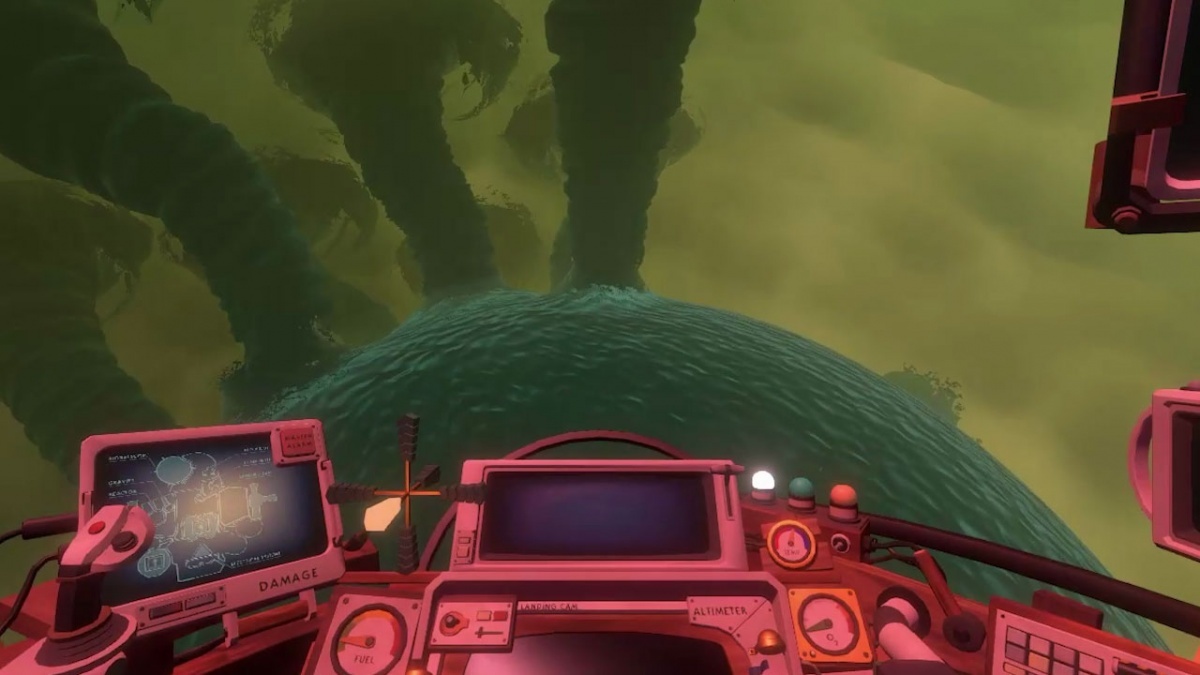
Cubed3 Rating
Average
It's a lonely, cold planet over here. Mileage on Outer Wilds will depend largely on how much one enjoys exploration, discovery and extrinsic reward versus repetitive backtracking and restrictive (but also far too long and frequently-occurring-to-be-as-restrictive-as-it-is) time limits. It may certainly be a monkey brain desire for feedback and a more robust signposting of progress, but even knowing that the lack of it here is exactly the point, one can't help think there are examples within interactive media that have done lateral think puzzles better. Ones that would waste less time in between solving puzzles, too. Clearly, there's a majority disagreement for this view, so take it with a pinch of salt, but also go into it aware that it's not going to be for everyone. It is an experience that introduces a lot of mind-bending sci-fi concepts and a surprisingly emotional, if conflicting, conclusion. One just wonders if we like the scaffolding more than we like the building itself. Perhaps, though, it's just that some people really don't like time loop mechanics.
Comments
Comments are currently disabled

 Sign In
Sign In Game Details
Game Details
 Out now
Out now  Out now
Out now  Out now
Out now  Out now
Out now  Subscribe to this topic
Subscribe to this topic Features
Features





 Top
Top

